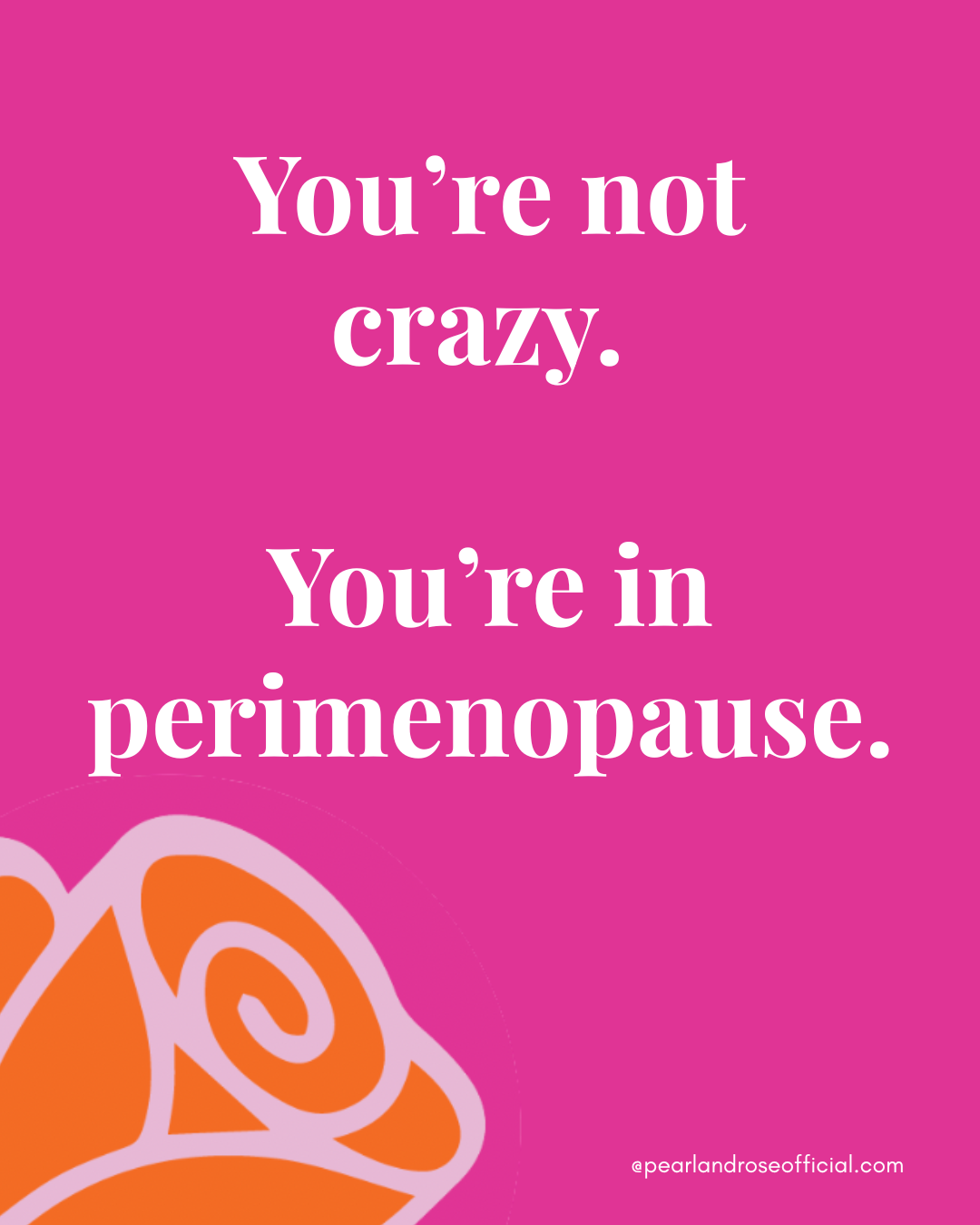10 Signs You’re in Perimenopause. (That No One Talks About)
Spoiler alert: If you still get a period, but everything else feels off… it could be perimenopause.
For so many of us, midlife brings a new kind of “mystery symptoms”—sleepless nights, rollercoaster moods, forgetfulness, anxiety, weight changes—and no one seems to give us a straight answer. Maybe your doctor tells you it’s stress. Maybe your labs look “normal.” Maybe you’re told you’re too young for menopause.
But here’s the truth: You might be in perimenopause.
So… What is Perimenopause?
Perimenopause is the hormonal transition leading up to menopause, the phase when your body starts producing less estrogen and progesterone. It typically begins in your 40s (sometimes even in your late 30s), and it can last anywhere from 4 to 10 years.
Even if you’re still getting your period—whether it’s regular or not—your hormones could be shifting dramatically behind the scenes.
And while hot flashes and night sweats might be the most talked-about symptoms, there are plenty of others that are rarely mentioned but just as disruptive.
10 Sneaky Signs You Might Be in Perimenopause
Night Sweats – Waking up drenched, even if your room is cold? Classic perimenopause sign.
Mood Swings or Sudden Rage – You feel like you’re flipping from fine to furious with no warning.
Brain Fog – You walk into a room and forget why. You lose your train of thought mid-sentence.
Crushing Fatigue – Not just tired. Bone-deep exhaustion that sleep or coffee can’t fix.
New or Increased Anxiety – Even if you’ve never had anxiety before, it can suddenly show up.
Irregular or Heavier Periods – Your cycle might get shorter, longer, heavier—or just completely unpredictable.
Low Libido or Vaginal Dryness – Sex may feel uncomfortable, or you might just not care anymore (which is also hormonal!).
Weight Gain Around the Middle – Especially frustrating when your habits haven’t changed.
Insomnia or Restless Sleep – You’re wired at bedtime or waking up at 3 a.m. for no reason.
Feeling Like a Stranger in Your Own Body – You don’t quite recognize yourself, physically or emotionally.
When Should You Talk to Your Doctor?
If any of these symptoms are interfering with your quality of life—your sleep, your relationships, your ability to focus or function—it’s time to speak up.
You don’t have to “wait it out” or suffer in silence until your period disappears for good.
Ask your provider if they’re trained in midlife and menopause care, or better yet, find a menopause-informed specialist who will actually listen and help you explore your options.
There are real, evidence-based solutions available—from lifestyle shifts to non-hormonal support to HRT—and you deserve to know what they are.
You’re Not Alone—Even If It Feels That Way
At Pearl & Rose, we believe that talking about perimenopause and menopause is powerful. Because when we share what we’re going through, we stop feeling broken and start feeling seen.
If this post resonates with you, share it with a friend. Chances are, she’s been wondering about her own symptoms too.
🩷 Looking for more midlife insights, expert advice, and real talk about menopause?
Follow us on Instagram at @pearlandroseofficial or Facebook to be part of the conversation.
Midlife isn’t a crisis—it’s a new beginning. And we’re navigating it together.

